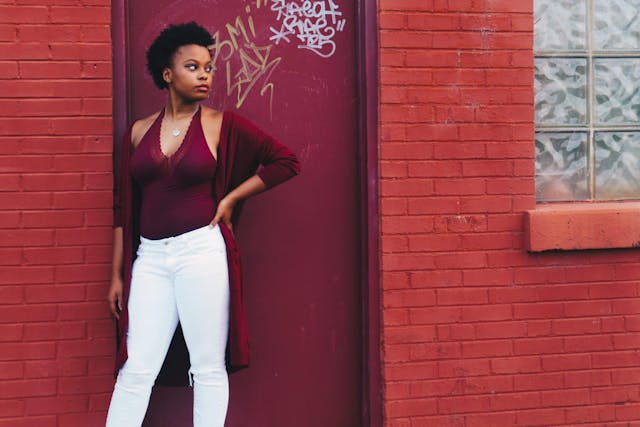Meet the most talented African American actresses in their 20s redefining Hollywood with power, nuance, and authenticity.
Hollywood has never been short on talent. But for decades, the industry failed to fully embrace the breadth, brilliance, and nuance of young Black women. That’s changing, and it’s changing fast.
The new generation of African American actresses in their 20s isn’t just performing on screen. They’re shaking the structure, reclaiming narratives, and forcing the spotlight to follow them, not the other way around. This article dives deep into who they are, why they matter, and how they’re leaving a permanent imprint on both the industry and the culture that consumes it.
Let’s break down the landscape and shine the light where it belongs: on these gifted young women and the seismic shift they’re driving.
What You'll Discover:
Why Representation in Your 20s Hits Different
When you’re in your 20s, the world is pushing you to define who you are. For young Black actresses, the pressure is twofold, they’re shaping their careers while navigating an industry that hasn’t always left room for complexity or nuance in portraying Black womanhood.
But this generation? They’re not playing along. They’re building careers rooted in substance, authenticity, and ownership.
These actresses are not waiting for permission. They’re creating, producing, writing, and speaking up. They’re rejecting roles that box them in and choosing stories that reflect their lived experiences, layered identities, and bold visions.
And it’s not just happening on screen, it’s showing up in boardrooms, writer’s rooms, and in cultural conversations that matter.
Zendaya (Born 1996)
She’s more than just a household name, Zendaya is a movement. Her role in Euphoria showcased her as a raw and unfiltered storyteller, unafraid of vulnerability or darkness.
But what sets her apart isn’t just her Emmy wins or red-carpet dominance, it’s the quiet authority she brings into every room. Zendaya is an executive producer, a fashion trailblazer, and a voice for self-definition in an industry obsessed with boxes.
When she speaks, it doesn’t feel like PR, it feels like purpose. And that kind of presence in your 20s? It’s rare. And it’s powerful.
Storm Reid (Born 2003)
Storm Reid’s career didn’t sneak up on us. She kicked the door in with A Wrinkle in Time, held her own in Euphoria, and stole scenes in The Last of Us. Her performances feel like conversations, fluid, real, and rooted.
What’s fascinating about Storm is her range. She can shift from fantasy to gritty realism without losing herself in the role. She doesn’t just play the character, she carries them.
She’s also launched her own production company, “A Seed & Wings Productions,” focusing on stories that uplift marginalized voices. That’s not just ambition, that’s infrastructure-building.
Marsai Martin (Born 2004)
Yes, she’s the youngest executive producer in Hollywood history. But that fact, though extraordinary, is just the beginning of Marsai’s impact.
She doesn’t just want to be in front of the camera. She wants to control what the camera sees. With Little and her expanding production portfolio, Marsai is out here rewriting the blueprint.
Most actresses wait decades to get behind the scenes. Marsai stepped into the industry already holding the pen. She’s not part of the next generation, she’s already creating it.
Dominique Fishback (Born 1991)
Dominique may be on the older end of the 20s spectrum, but her energy is unmistakably youthful, disruptive, and deep.
Her performance in Swarm was haunting, complex, and deliberately uncomfortable, a far cry from stereotypical depictions of young Black women. And in Judas and the Black Messiah, she delivered quiet power in a role that required emotional layering without theatrics.
Dominique’s gift lies in her ability to shift tone without losing narrative clarity. She isn’t acting to be seen, she’s acting to make you see something new.
Coco Jones (Born 1998)
Remember her from Disney’s Let It Shine? Coco Jones has undergone one of the most thrilling artistic rebirths of any young actress.
As Hilary Banks in Bel-Air, Coco brings poise, charm, and a kind of deliberate self-awareness that the original role never got the space to explore.
But she’s not stopping at acting. Her music career has exploded with soul, vulnerability, and confidence. She’s no longer reintroducing herself, she’s owning her spotlight.
Lexi Underwood (Born 2003)
Lexi isn’t here to play safe. From Little Fires Everywhere to Sneakerella, she embraces roles that explore race, class, identity, and self-worth. Her performances feel lived-in, like she’s been carrying these stories long before the camera rolled.
She also launched her own production company and uses her platform to speak on social justice issues, making it clear that artistry and activism aren’t separate in her world.
Saniyya Sidney (Born 2006)
Yes, she’s younger than most on this list, but her work in King Richard as Venus Williams earned her not just attention, but deep respect.
Saniyya brings maturity, focus, and athletic precision to her craft. Her performances don’t scream for attention, they earn it quietly, steadily.
She’s proof that the next-next generation of Black actresses is already arriving, and they’re arriving prepared.
What’s Fueling This Radical Shift?
This isn’t just a lucky moment or a passing trend. It’s a result of decades of pressure, activism, and a new culture that doesn’t wait to be invited in.
Here’s what’s driving this renaissance:
They’re Taking Control of Their Narratives
These young actresses aren’t content with just landing roles, they want to tell stories that matter. They’re forming production companies, negotiating executive producer credits, and working with writers to ensure scripts reflect truth, not tropes.
They’re Backed by New Gatekeepers
Streaming platforms, social media, and indie studios have changed the equation. You don’t need a major studio to be seen, you need a voice, a platform, and a vision.
And guess what? This generation has all three.
Mentorship, But Not the Old-School Kind
Many of these young actresses credit older trailblazers, Viola Davis, Regina King, Taraji P. Henson, for opening doors. But mentorship has evolved. It’s not about climbing the same ladder anymore, it’s about building new structures altogether.
Young Black actresses are learning from those who came before but aren’t confined to their paths.
They Understand Branding Without Selling Out
In an era where “authenticity” is currency, these women know how to show up as themselves across platforms. Whether they’re doing press or sharing a moment on Instagram, their identity is consistent, and it’s theirs.
This makes their connection with audiences real. Not curated. Not sanitized. Just honest.
Why This Matters Beyond Entertainment
It’s tempting to think this conversation is just about movies or fame. But it goes deeper.
Representation at this level touches everything, from how young Black girls see themselves, to how the world sees Black womanhood. These actresses carry more than scripts, they carry weight. And they’re not afraid of it.
When young Black women can see themselves as complex, messy, brilliant, vulnerable, and powerful on screen, it shifts how society allows them to show up in real life.
This isn’t just visibility. It’s cultural recalibration.
The Roles They Deserve (And Are Finally Getting)
For too long, young Black actresses were boxed into:
- The sassy best friend
- The angry girl
- The overly mature teen
- The magical fix-it-for-everyone sidekick
But that’s changing. Now, we’re seeing:
- Black girls who are awkward and nerdy
- Young women navigating mental health, grief, and identity
- Black leads in fantasy, horror, and sci-fi
- Girls falling in love on their own terms
This is where the magic lives. Not in make-believe, but in stories that finally allow Black girls to be fully human.
What Still Needs to Change
Let’s not pretend everything’s fixed. The road ahead is still layered with resistance and coded bias. Studios still greenlight fewer Black-led projects. Critics often misunderstand or undercut nuanced performances. And awards bodies lag behind in recognizing new kinds of talent.
The work isn’t done. But it’s being done, loudly, unapologetically, and with momentum that can’t be reversed.
Key Takings
- The new generation of African American actresses in their 20s isn’t just succeeding, they’re shifting the power structure of Hollywood.
- These women are producers, storytellers, and cultural architects, not just performers.
- They refuse to shrink themselves for roles, instead demanding narratives that reflect real complexity and humanity.
- This wave of representation is redefining what young Black womanhood looks like in film and TV, not as one-dimensional, but as vast, layered, and individual.
- The industry has a long way to go, but thanks to this generation’s boldness and clarity, the course has already changed.
- These young women aren’t waiting to be cast, they’re casting their own light.





